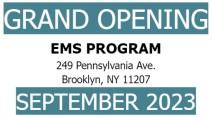
Five Common Substances of Abuse
1. ALCOHOL
Alcohol is a central nervous system depressant that can cause relaxation, lowered inhibitions, impaired judgement, and impaired coordination.
Signs and Symptoms of Alcohol Abuse:
- Drinking in larger amounts or for longer periods than intended
- Wanting to cut down or quit but being unable to do so
- Spending a lot of time drinking or recovering from drining
- Giving up important activities or relationships to drink
- Continuing to drink despite negative consequences, such as job loss, legal trouble, or relationship problems
- Developing a tolerance to alcohol and needing more to achieve the desired effect
- Experiencing withdrawal symptoms, such as tremors or seizures, when attempting to quit
Treatment for Alcohol Abuse:
- Medical detoxification to safely manage withdrawal symptoms
- Medication-assisted therapy to reduce cravings and prevent relapse, such as acamprosate, disulfiram, or naltrexone
- Behavioral therapy, such as cognitive-behavioral therapy (CBT) or motivational interviewing (MI), to address underlying issues and develop coping strategies
- Support groups, such as Alcoholics Anonymous (AA), to provide peer support and encouragement
- Inpatient or outpatient rehabilitation programs
2. CANNABIS
Cannabis is a psychoactive drug that can cause euphoria, altered perception, and relaxation.
Signs and Symptoms of Cannabis Abuse:
- Bloodshot eyes
- Impaired coordination and balance
- Increased appetite or "the munchies"
- Altered perception, such as distorted time or space
- Impaired memory and difficulty concentrating
- Paranoia or anxiety
Treatment for Cannabis Abuse:
- Behavioral therapy, such as cognitive-behavioral therapy (CBT) or motivational interviewing (MI), to address underlying issues and develop coping strategies
- Support groups, such as Marijuana Anonymous (MA), to provide peer support and encouragement
- Medication-assisted therapy may be helpful in some cases.
3. OPIOIDS
Opioids are a class of drugs that include prescription painkillers like oxycodone and hydrocodone, as well as illicit drugs like heroin. Opioids can cause euphoria, pain relief, and sedation.
Signs and Symptoms of Opioid Abuse:
- Constricted pupils
- Nodding off or falling asleep at inappropriate times
- Slow or shallow breathing
- Nausea, vomiting, and constipation
- Flushed skin or itchy skin
- Confusion or disorientation
- Track marks on the skin from injecting opioids
Treatment for Opioid Abuse:
- Medical detoxification to safely manage withdrawal symptoms
- Medication-assisted therapy to reduce cravings and prevent relapse, such as methadone, buprenorphine, or naltrexone
- Behavioral therapy, such as cognitive-behavioral therapy (CBT) or contingency management (CM), to address underlying issues and develop coping strategies
- Support groups, such as Narcotics Anonymous (NA), to provide peer support and encouragement
- Inpatient or outpatient rehabilitation programs.
4. STIMULANTS
Stimulants are a class of drugs that include prescription medications like Adderall and Ritalin, as well as illicit drugs like cocaine and methamphetamine. Stimulants can cause increased energy, alertness and euphoria.
Signs and Symptoms of Stimulant Abuse:
- Dilated pupils
- Increased heart rate and blood pressure
- Rapid speech or talking excessively
- Weight loss or decreased appetite
- Agitation or restlessness
- Insomnia or disturbed sleep patterns
- Paranoia or psychosis, in some cases
5. BENZODIAZEPINES
Benzodiazepines are a class of prescription drugs that are commonly used to treat anxiety and sleep disorders. Benzodiazepines can cause relaxation, sedation, and euphoria.
Signs and Symptoms of Benzodiazepine Abuse:
- Slurred speech
- Impaired coordination and balance
- Memory problems and confusion
- Drowsiness or sedation
- Respiratory depression or difficulty breathing
Treatment for Benzodiazepine Abuse:
- Medical detoxification to safely manage withdrawal symptoms
- Medication-assisted therapy may be helpful in some cases
- Behavioral therapy, such as cognitive-behavioral therapy (CBT) or contingency management (CM), to address underlying issues and develop coping strategies
- Support groups, such as Benzodiazepine Recovery, to provide peer support and encouragement
It's important to note that the signs and symptoms of substance abuse may vary depending on the individual and the specific substance involved. Treatment may also vary depending on the individual and their specific needs, but it often includes a combination of medical and behavioral interventions, including detoxification, medication-assisted therapy, counseling, and support groups.


